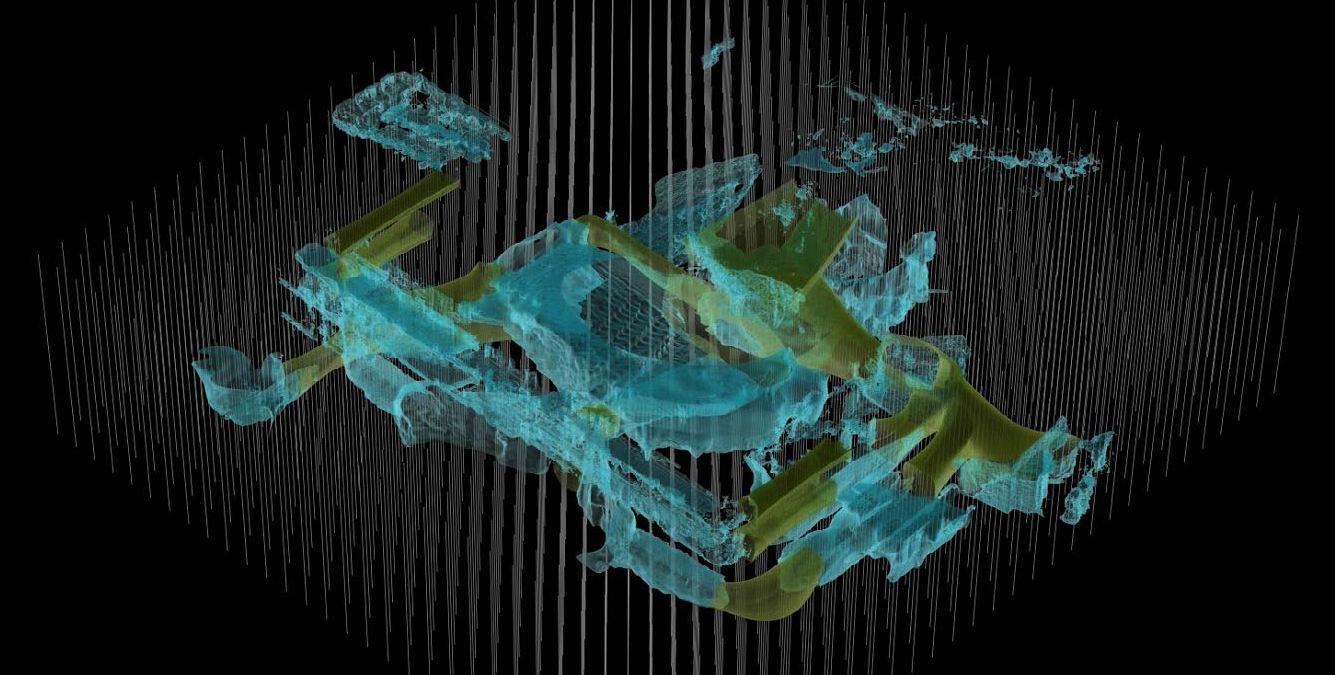Master of Architecture (post-professional)

Information session
Watch the live information session recording with Professor Mason White, Program Director
Description
The post-professional Master of Architecture is an advanced design and research program for individuals already holding a professional degree in architecture. This option provides a challenging and rigorous forum for those wishing to extend and focus their previous education in architecture. It seeks a diverse range of applicants, particularly those holding the promise of professional and academic leadership.
Successful applicants will declare a specific research area of interest and structure an integrated course of study that includes a field course, colloquium, thesis preparation, and electives. The program is oriented around a design-research thesis project. Students work closely throughout the program with faculty advisors with expertise in a declared area of interest, and gain insight from leading practitioners, theorists, and guest critics. This program is aligned with the post-professional Master of Landscape Architecture program to allow students to build a cohort across the two disciplines, offering an enriched experience.
Applicants should identify research proposals within one of the areas of interest offered in the program:
Computation + Fabrication
Students in the Computation + Fabrication area will focus on architecture’s technological role. The impact of new and evolving advances in design technologies and the increased interface between computation and fabrication offer opportunities for research and innovation. Students in Computation + Fabrication will use design research to interrogate the broadening impact of the increased interface between data, tools, instruments, software, and materials.
Health + Society
Students in the Health + Society area will focus on architecture’s social role. There are increasing needs and opportunities for design research on the architecture of health, wellness, and well-being. Students in Health + Society will pursue design-research projects that acknowledge the complex nature of the delivery of healthcare globally and the specific nature to which architecture needs to respond.
Sustainability + Environment
Students in the Sustainability + Environment area will focus on architecture’s environmental role. Architecture must urgently address greater innovation in contemporary sustainability and environmental concerns. Students in Sustainability + Environment will develop design-research projects that situate architecture’s response to climate change, energy and resource depletion, and compromised natural systems.
Justice + Action
Students in the Justice + Action area will focus on architecture's political role. As cities have grown unevenly and more divided, their everyday networks have become more contested. Far from being neutral, architecture has played a pivotal role in producing spatial exclusion and segregation. Students in Justice + Action will enquire through design-research how design operates as a platform for representation and empowerment of underrepresented publics that foster inclusivity and plurality.
Applicants should indicate their research intentions within one of the four areas of interest in a concise statement of no more than 1000 words. It is not necessary to declare an advisor to apply.
Requirements
The post-professional Master of Architecture does not grant a professionally accredited degree; rather, a professional degree is a prerequisite for admission. Those wishing to verify the status in Canada of a professional architecture degree earned abroad should contact the Canadian Architectural Certification Board (CACB): info@cacb.ca.
Curriculum
The course of study includes 6.0 credits over two semesters of study including an intensive two-week fieldcourse (0.5) and thesis preparation (0.5) during late summer, thesis I (1.0), thesis II (1.5), a colloquium (0.5), and elective courses (2.0).
At least one of the electives should have subject overlap with the student's research and area of interest, as agreed upon with their advisor.
Term 1 (Fall)
ALA 4010H: Field Course (intensive two-week course in late August)
ALA 4020H: Thesis Prep (intensive two-week course in late August)
ALA 4021YF: Thesis 1
ALA 4030HF: Colloquium
Elective
Elective
Term 2 (Winter)
ALA 4022YF: Thesis 2
Elective
Elective
Admissions
More information on admissions to the post-professional Master of Architecture program is available on our Graduate Admissions page.
October 1, 2025: Applications open
January 5, 2026: Applications due
Thesis Projects
2025
Learning on the Go: Spatial & Child Psychology of School Designs
Corrine Guo
Advisor: Miles Gertler
Architecture Without Architects: Understanding Self-built Dwellings
Maiara Martinello
Advisor: Noheir Elgendy
Invisible Architecture: Micro-climate of Material Energies
Ridhi Shah
Advisors: Carol Moukheiber, Christos Marcopoulos
2024
Preserving the Past, Protecting the Future: Climate-responsive Vernacular
Ardeshir Amini
Advisor: Alex Lukachko
In search of Palestine that is more than just a memory – افتش عن فلسطين التي هي اكثر من ذاكرة
Noor Hamdan
Advisors: Noheir Elgendy and Carol Moukheiber
Reimagining Erosion: Form Fnding Through Computation
Mohanned Iskanderani
Advisors: Brady Peters and Paul Howard Harrison
Appearing and Disappearing: Reflections on Urban Linear Space in China
Yufei Lin
Advisors: Reza Nik and Simon Rabyniuk
DwellQuest: Gamifying a Process for Toronto's Multiplex Revolution
Keith Nathan Vincent Tiu
Advisors: Jon Cummings and Paul Howard Harrison
Vacant City: Breathing New Life into Shenzhen's Office Spaces
Zixun Zhang
Advisor: Jon Cummings
2023
Nature/Culture: Mutations at the Tip of Florida
Yimin Hu
Advisor: Petros Babasikas
Borders, Thresholds, Passports
Romina Mehrbod
Advisors: Mitchell Akiyama and Maria Yablonina
2022
Designing With Embodied Carbon
Neveen Naushad
Advisor: Alex Lukachko
Space to Play
David Peterson
Advisors: Erica Allen-Kim and Stephen Verderber
Emotions and Sustainability
Peishan Shen
Advisor: Alstan Jakubiec
Microtopia
Zhuo Wang
Advisors: Michael Piper and Roberto Damiani
2021
Machined Memory
Hong Ahn
Advisors: Maria Yablonina and Paul Howard Harrison
Manifesto For The Miscellaneous
Youssef El Helou
Advisor: Adrian Phiffer
Glass Politics: on broken windows in Beirut
Batoul Faour
Advisor: Carol Moukheiber
Movements in the Other Experience Economy
Pooja Satish
Advisor: Jesse Le Cavalier
Header image credit: Hong Ahn

